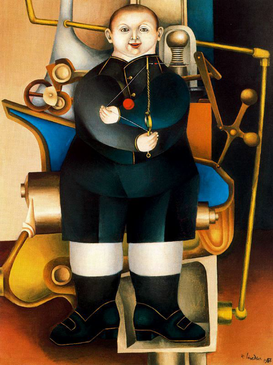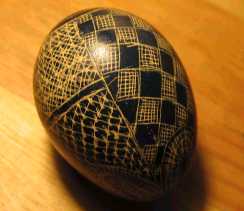Anti-Oedipus
Anti-Oedipus
Anti-Oedipus: Capitalism and Schizophrenia is a seminal work of philosophy and critical theory by the French authors Gilles Deleuze and Félix Guattari. Published in 1972, it is the first volume of their two-part work "Capitalism and Schizophrenia," followed by "A Thousand Plateaus" in 1980. The book is a critique of traditional psychoanalysis, capitalism, and the concept of the Oedipus complex, proposing a new framework for understanding desire and social structures.
Overview[edit | edit source]
"Anti-Oedipus" challenges the psychoanalytic theory of Sigmund Freud, particularly the centrality of the Oedipus complex in understanding human psychology. Deleuze and Guattari argue that the Oedipus complex is a construct that limits the potential of human desire by confining it within familial structures. Instead, they propose the concept of "desiring-production," which views desire as a productive force that is not inherently repressive or neurotic.
The authors introduce the idea of the "body without organs" (BwO), a concept borrowed from Antonin Artaud, to describe a state of pure potentiality and flow of desire, unencumbered by the structures imposed by society and psychoanalysis. They argue that capitalism exploits desire by channeling it into consumerism and production, creating a "schizophrenic" society where individuals are alienated from their true desires.
Key Concepts[edit | edit source]
Desiring-Production[edit | edit source]
Desiring-production is a central concept in "Anti-Oedipus," referring to the process by which desire is not merely a lack or a need, but a productive force that creates reality. Deleuze and Guattari argue that desire is not confined to the individual psyche but is a social and collective phenomenon that drives economic and social systems.
Body Without Organs (BwO)[edit | edit source]
The "body without organs" is a metaphor for a state of being where desire flows freely without being structured by social or psychological constraints. It represents a potential for creativity and transformation, opposing the rigid structures of the Oedipal family and capitalist society.
Schizoanalysis[edit | edit source]
Schizoanalysis is the alternative to psychoanalysis proposed by Deleuze and Guattari. It seeks to liberate desire from the confines of the Oedipus complex and explore the multiplicity of connections and flows that constitute human experience. Schizoanalysis emphasizes the importance of understanding the social and political dimensions of desire.
Critique of Psychoanalysis[edit | edit source]
Deleuze and Guattari critique psychoanalysis for its focus on the family and the Oedipus complex as the primary determinants of human behavior. They argue that this focus is reductive and fails to account for the broader social and economic forces that shape desire. By emphasizing the role of the unconscious in perpetuating social norms, they challenge the authority of psychoanalysis as a tool for understanding human psychology.
Influence and Legacy[edit | edit source]
"Anti-Oedipus" has had a profound impact on various fields, including philosophy, political theory, cultural studies, and psychoanalysis. It has influenced thinkers such as Michel Foucault, who wrote the preface to the English edition, and has been a foundational text for the development of post-structuralism and postmodern theory.
The book's radical critique of capitalism and its exploration of desire as a social force have resonated with movements seeking to challenge traditional power structures and explore new forms of social organization.
Also see[edit | edit source]
This article is a philosophy-related stub. You can help WikiMD by expanding it!
This article is a Psychoanalysis-related stub. You can help WikiMD by expanding it!
Search WikiMD
Ad.Tired of being Overweight? Try W8MD's physician weight loss program.
Semaglutide (Ozempic / Wegovy and Tirzepatide (Mounjaro / Zepbound) available.
Advertise on WikiMD
|
WikiMD's Wellness Encyclopedia |
| Let Food Be Thy Medicine Medicine Thy Food - Hippocrates |
Translate this page: - East Asian
中文,
日本,
한국어,
South Asian
हिन्दी,
தமிழ்,
తెలుగు,
Urdu,
ಕನ್ನಡ,
Southeast Asian
Indonesian,
Vietnamese,
Thai,
မြန်မာဘာသာ,
বাংলা
European
español,
Deutsch,
français,
Greek,
português do Brasil,
polski,
română,
русский,
Nederlands,
norsk,
svenska,
suomi,
Italian
Middle Eastern & African
عربى,
Turkish,
Persian,
Hebrew,
Afrikaans,
isiZulu,
Kiswahili,
Other
Bulgarian,
Hungarian,
Czech,
Swedish,
മലയാളം,
मराठी,
ਪੰਜਾਬੀ,
ગુજરાતી,
Portuguese,
Ukrainian
Medical Disclaimer: WikiMD is not a substitute for professional medical advice. The information on WikiMD is provided as an information resource only, may be incorrect, outdated or misleading, and is not to be used or relied on for any diagnostic or treatment purposes. Please consult your health care provider before making any healthcare decisions or for guidance about a specific medical condition. WikiMD expressly disclaims responsibility, and shall have no liability, for any damages, loss, injury, or liability whatsoever suffered as a result of your reliance on the information contained in this site. By visiting this site you agree to the foregoing terms and conditions, which may from time to time be changed or supplemented by WikiMD. If you do not agree to the foregoing terms and conditions, you should not enter or use this site. See full disclaimer.
Credits:Most images are courtesy of Wikimedia commons, and templates Wikipedia, licensed under CC BY SA or similar.
Contributors: Prab R. Tumpati, MD




